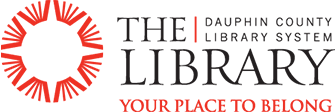“Is it Friday yet?” Maher Elsaka would ask his mom every week. “Is it Friday yet?” 
Maher loved his Speech Links to Literacy sessions every Friday, but he didn’t know about the serious purpose behind the fun. In this specially developed version of Storytime, parents know that their preschoolers get help overcoming speech challenges while improving their reading skills.
Speech Links to Literacy is a joint effort of The Library and the Capital Area Intermediate Unit, which provides developmental therapies and learning support to children throughout the region. Through Speech Links to Literacy, The Library is helping children with barriers to literacy make measurable gains and overcome developmental delays on their way to kindergarten readiness and school success.
CAIU speech-language pathologist Heidi Haas developed the program and, with an Innovation Grant from the Center for Advanced School Teaching and Learning (CASTL), partnered with The Library to bring it into the community. To The Library, the program offered a response to parents seeking more intensive preschool speech and literacy programs.
Through each 12-week program, Haas and Library staff act as co-teachers, tailoring every session to the goals of each student. While Haas might choose readings that emphasize the “s” or “g” sounds, the librarian introduces print awareness and book-handling skills, such as reading left to right or the roles of authors and illustrators.
“It’s a program we believe in, and it has a powerful benefit for our members,” said Library Programming and Outreach Administrator Tynan Edwards. “The speech services that Heidi Haas performs are extremely specialized. It’s not something we can do by ourselves. It’s a great partnership with her and through the CAIU to offer as many kids as possible the opportunity to get that extra attention.”
Children with speech sound disorders have difficulties forming or perceiving certain sounds. As research has found, they can also need more awareness of the phonological sounds that combine to make words and struggle to learn reading. Speech Links to Literacy is open to 4-year-olds — an age when targeted interventions can correct those deficits.
Assessments show that participating children make gains in speech sounds and literacy. Through reading, crafts, and songs, children build phonological awareness, knowledge of the alphabet and print concepts, and vocabulary.
“We’re just trying to get ahead of things, being very purposeful in instruction for these kids so they aren’t at a disadvantage when they go to kindergarten,” said Haas
As CAIU strives to bring more services to community settings, The Library “checks a lot of boxes,” Haas adds. “We’re doing speech therapy outside of our four walls. We’re doing it at The Library, which is accessible to everybody. The Library is the perfect partnership since it’s all about reading.”
Speech Links to Literacy began last year in Madeline Olewine Memorial Library. It’s also offered at East Shore Area Library, and The Library is developing plans to bring it to one of its Upper Dauphin County libraries. Five of the 10 spots are open to children already receiving IU speech therapy, and the other five are available for children from the community.
For a recent Storytime segment of the session, Haas read Mo Willems’ ever-popular “Don’t Let the Pigeon Drive the Bus.” She led students in clapping to count the syllables of chosen vocabulary words.
“How many claps do we hear in the word ‘pigeon’?” she’ll ask. When she says ‘pigeon,’ she’ll repeat the opening “p” as a breath of air – “puh, puh” – and ask if the children can hear it.
air – “puh, puh” – and ask if the children can hear it.
Maher Elsaka loves acting out nursery rhymes, reenacting a cow jumping over the moon.
“One child could be the cow, one could be the moon, one could be the spoon, and one could be the dish, and they ran away together,” said his mom, Fatima. “The biggest thing about speech therapy is that there is an educational content. It’s not just singing and dancing. Of course, they learn from that, but it’s also practicing handwriting and letters and sounds.”
Elsaka has seen Maher improve his speech sounds while building the confidence to speak up – not always easy for a quiet middle child.
“It was very good for his confidence and mine,” she said. “I think he is getting better and interacting with other kids. Most speech therapy is done one-on-one, so he doesn’t get to see that other kids are struggling.”
A key program element is parental coaching that extends the gains into the home. Caregivers learn to watch for signs of progress, such as making sure their children round their lips while making certain sounds. They can also choose books recommended by the librarian to take home.
“Preschoolers like showing off to their moms and dads what they can do,” said Haas. “Parents are learning how to cue for speech sounds. The hope is they’ll check out a book and try to carry over some of the things we’ve modeled, like rhyming and sound awareness, with a book they like at home.”
Speech Links to Literacy: Current sessions run through Dec. 8 at Olewine Library and Dec. 14 at East Shore Area Library. Parents can register for open slots or the wait list for the next available spots. The next session starts in early 2024. Watch Compass or DCLS.org for details and registration.



